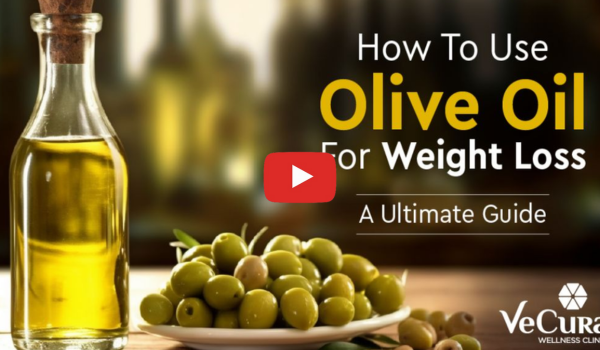Best Time to Drink Olive Oil for Weight Loss Explained
Discover the best time to drink olive oil for weight loss. Learn how timing impacts digestion, satiety, metabolism, and fat burning for better results.
Best Time to Drink Olive Oil (⚡SECRET UNVEILED❗) Unlock Rapid Weight Loss!
In the pursuit of effective and natural weight loss strategies, olive oil has emerged as a noteworthy contender.
Celebrated for its heart-healthy fats and rich antioxidant content, olive oil is a staple in the Mediterranean diet.
But beyond its culinary uses, many wonder: When is the best time to drink olive oil for weight loss?
This blog delves into the science-backed benefits of olive oil, optimal consumption times, and practical tips to incorporate it into your daily routine for maximum weight loss benefits.
Understanding Olive Oil’s Role in Weight Loss
Before pinpointing the ideal time to consume olive oil, it’s essential to understand how it contributes to weight management.
- Rich in Healthy Fats: Olive oil is predominantly composed of monounsaturated fats, particularly oleic acid, which has been linked to reduced inflammation and improved heart health.
- Contains Antioxidants: Extra virgin olive oil is packed with antioxidants, such as vitamin E and polyphenols, which combat oxidative stress and inflammation, both of which can hinder weight loss efforts.
- Enhances Satiety: The fats in olive oil can promote feelings of fullness, potentially reducing overall calorie intake by curbing hunger and preventing overeating.
- Supports Metabolism: Some studies suggest that olive oil may boost metabolism, aiding in more efficient fat burning.
Optimal Timing: When Should You Drink Olive Oil?
Morning Consumption: Kickstart Your Day
Consuming a tablespoon of extra virgin olive oil in the morning, preferably on an empty stomach, can offer several benefits:
- Boosts Metabolism: Starting your day with olive oil may activate fat-burning genes, setting a positive tone for the rest of the day.
- Enhances Digestion: Olive oil can stimulate bile production, aiding in the digestion of fats and promoting smoother bowel movements.
- Reduces Appetite: The healthy fats in olive oil can increase feelings of fullness, potentially leading to reduced calorie intake throughout the day.
Pre-Workout: Fuel for Fat Burning
Incorporating olive oil before a workout can be beneficial:
- Provides Sustained Energy: The monounsaturated fats in olive oil offer a slow-releasing energy source, supporting prolonged physical activity.
- Enhances Fat Oxidation: Some research indicates that consuming olive oil before exercise may increase fat oxidation, leading to more efficient fat burning during workouts.
With Meals: Enhancing Nutrient Absorption
Adding olive oil to meals, especially those rich in vegetables, can:
- Improve Nutrient Absorption: Olive oil aids in the absorption of fat-soluble vitamins (A, D, E, K) from vegetables, enhancing their nutritional value.
- Promote Satiety: Including olive oil in meals can increase feelings of fullness, potentially reducing overall calorie intake.
How to Incorporate Olive Oil into Your Diet
Here are some practical ways to include olive oil in your daily routine:
- Morning Shot: Take a tablespoon of extra virgin olive oil first thing in the morning. For added flavor and benefits, you can mix it with a few drops of lemon juice.
- Salad Dressing: Use olive oil as a base for homemade salad dressings. Combine it with balsamic vinegar, mustard, and herbs for a healthy and flavorful dressing.
- Cooking: Replace butter or other cooking oils with olive oil. It’s ideal for sautéing vegetables, grilling meats, or drizzling over roasted dishes.
- Smoothies: Add a teaspoon of olive oil to your morning smoothie. It blends well with fruits and vegetables, adding healthy fats without altering the taste significantly.
- Baking: Incorporate olive oil into baked goods as a substitute for butter or other fats. It works well in recipes for cakes, muffins, and breads.
Precautions and Considerations
While olive oil offers numerous health benefits, it’s essential to consume it in moderation:
- Caloric Content: One tablespoon of olive oil contains approximately 119 calories. Overconsumption can lead to an excess calorie intake, potentially hindering weight loss efforts.
- Quality Matters: Opt for high-quality extra virgin olive oil, as it retains more nutrients and antioxidants compared to refined varieties.
- Individual Reactions: Some individuals may experience digestive discomfort when consuming olive oil on an empty stomach. If this occurs, consider incorporating it into meals instead.
Sample Daily Routine: Olive Oil for Weight Loss
To help you visualize how olive oil fits into your day, here’s a simple example of a balanced routine:
| Time of Day | Olive Oil Use | Purpose |
| 7:00 AM | 1 tbsp olive oil on an empty stomach | Appetite suppression, digestion boost |
| 12:30 PM | Olive oil-based dressing on salad | Nutrient absorption, satiety |
| 5:30 PM | Light drizzle over roasted veggies or quinoa bowl | Flavor, healthy fat intake |
| 8:00 PM | (Optional) 1 tsp with chamomile tea | Gentle digestion support before bed |
Tips for Choosing the Right Olive Oil
Not all olive oils are equally beneficial. To maximize results, choose wisely:
Look for:
- “Extra Virgin” on the label (cold-pressed, least processed)
- Dark glass bottles (protects oil from light damage)
- Harvest date or “best by” date
- Organic or pesticide-free certification
- Origin from reputable Mediterranean producers
Avoid:
- “Pure,” “light,” or “refined” olive oil (heavily processed, lower polyphenol content)
- Plastic packaging (can leach chemicals and degrade oil quality)
- Blends with other cheaper oils (like soybean or canola)
Freshness is key. Always store olive oil in a cool, dark place and use it within 2–3 months of opening for maximum potency.
Who Should Avoid Drinking Olive Oil?
While olive oil is safe for most people, a few exceptions apply:
- People with gallbladder disorders: Olive oil stimulates bile, which can worsen symptoms in those with gallstones or bile duct obstruction.
- Those on very low-fat diets: If prescribed for medical reasons, consult your provider before adding any fats.
- Individuals with severe acid reflux: Drinking oil on an empty stomach may trigger symptoms.
- People on blood thinners: Olive oil has mild anticoagulant properties and may enhance the effects of medications like warfarin.
Always speak with a healthcare provider before making significant dietary changes especially if you have a chronic health condition or take prescription medications
How Long Before You See Results?
Consistency is key when using olive oil for weight loss. While results can vary, here’s a general guideline:
| Timeframe | What to Expect |
| Week 1–2 | Improved digestion, reduced cravings, better bowel movements |
| Week 3–4 | Enhanced satiety, fewer sugar crashes |
| Month 2–3 | Visible weight loss, smaller waistline, more energy |
| Month 4 and beyond | Continued fat loss, metabolic improvements, stable weight maintenance |
Remember: olive oil supports weight loss. It doesn’t replace the need for a calorie deficit, healthy habits, or physical activity. But used strategically, it can make those goals easier to reach and sustain.
Choosing the Best Time to Drink Olive Oil for Weight Loss
Olive oil, particularly high-quality extra virgin olive oil, is not just a flavorful addition to your meals, it’s a functional food that may support long-term weight loss and overall metabolic health.
From improving satiety to enhancing fat oxidation and digestive efficiency, its potential benefits are wide-ranging and well-supported by both traditional use and scientific research. But as with any natural remedy or wellness habit, timing is everything.
Understanding when to drink olive oil for weight loss whether first thing in the morning, before a workout, or alongside nutrient-rich meals can make all the difference in how effectively your body absorbs and utilizes its health-boosting compounds.
Recap: The Best Times to Drink Olive Oil
- Morning (on an empty stomach): For appetite control, digestive stimulation, and metabolic kickstart
- Pre-workout: For sustained energy and increased fat-burning potential
- With meals: To support nutrient absorption and improve satiety, reducing post-meal cravings
Each option has unique benefits, and the right time for you may depend on your daily routine, digestive sensitivity, or lifestyle preferences.
Some people find success combining more than one method, for example, taking a small amount in the morning and using it again later in the day with lunch or dinner.
When Is the Best Time to Drink Olive Oil for Weight Loss?
Olive oil is more than just a kitchen staple; it’s a time-tested, science-backed ally in your weight loss journey.
Rich in monounsaturated fats and powerful antioxidants, it supports appetite control, improves digestion, boosts metabolism, and helps regulate blood sugar. But like any effective tool, its success lies in how and when you use it.
So, when is the best time to drink olive oil for weight loss? The answer depends on your lifestyle and goals:
- Morning (on an empty stomach) to activate metabolism and curb early cravings
- Before workouts for sustained energy and enhanced fat burning
- With meals to increase satiety and nutrient absorption
Each of these times has its own benefits and when paired with a healthy diet, regular physical activity, and mindful habits, olive oil can become a powerful part of your sustainable weight loss strategy.
Remember: moderation and quality are key. Stick with high-quality extra virgin olive oil, and use 1–2 tablespoons per day to reap the benefits without overdoing calories.
Weight loss isn’t about quick fixes, it’s about building small, smart habits that add up over time. Incorporating olive oil at the right time each day might be one of those habits that helps tip the scale in your favor.
Frequently Asked Questions (FAQs)
1. Can I drink olive oil at night for weight loss?
While morning is often considered ideal, drinking olive oil at night may help with digestion and stabilize blood sugar overnight. However, some people may experience discomfort if taken too close to bedtime. Try it earlier in the evening to see how your body responds.
2. How much olive oil should I drink daily for weight loss?
Start with 1 tablespoon (about 15 ml) per day. You can gradually increase to 2 tablespoons depending on how your body responds and your daily calorie needs. Avoid exceeding this amount to prevent excess calorie intake.
3. Can olive oil replace meals or snacks?
No olive oil is a supplement to a healthy diet, not a meal replacement. While it can help reduce hunger between meals, it does not contain enough protein, fiber, or essential nutrients to serve as a full meal.
4. Is it safe to drink olive oil every day?
For most healthy adults, yes drinking olive oil daily is safe and even encouraged as part of a heart-healthy, anti-inflammatory diet. However, those with gallbladder issues or fat absorption problems should consult a healthcare provider.
5. Can I cook with olive oil instead of drinking it?
Absolutely. While drinking olive oil raw may offer more intact polyphenols, cooking with olive oil (especially at low to medium heat) still provides many of its benefits and may be easier for some people to integrate regularly.
Conclusion
Drinking olive oil might seem unconventional, but science and centuries of tradition support its role in healthy weight management. Thanks to its rich content of monounsaturated fats, antioxidants, and bioactive compounds, extra virgin olive oil can:
- Help curb appetite and reduce cravings
- Improve digestion and support regularity
- Stabilize blood sugar and reduce fat storage
- Enhance metabolism and energy levels
But to maximize these benefits, timing is key.
Whether you choose to drink it first thing in the morning on an empty stomach, before a workout for sustained energy, or with meals to enhance satiety and nutrient absorption, olive oil can become a simple, natural, and effective part of your weight loss strategy.
Remember:
✅ Choose high-quality extra virgin olive oil
✅ Stick to 1–2 tablespoons per day
✅ Use it consistently as part of a healthy lifestyle
✅ Pair it with a balanced diet, regular activity, and good sleep
Olive oil won’t work overnight, nor is it a magic solution but over time, this golden elixir can gently nudge your body toward better digestion, fewer cravings, and a more efficient metabolism.
If you’re looking for a safe, natural way to support your weight loss journey, now might be the best time to make olive oil part of your daily ritual.
.




